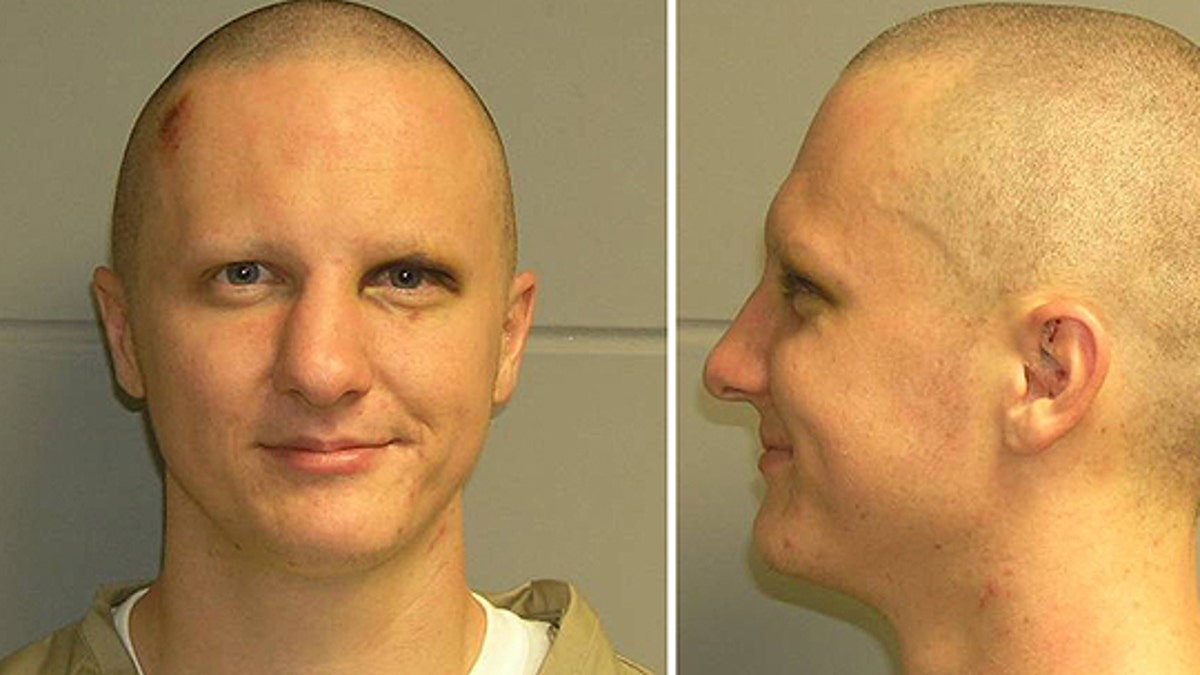
Feb. 22: This combination of photos of Jared Loughner was released by the U.S. Marshal's Service. The photo was taken in Phoenix while Loughner was in the agency's custody. (AP)
SAN FRANCISCO – A federal appeals court will hear arguments Tuesday over a request to permanently ban prison officials from forcibly medicating the Tucson shooting rampage suspect with psychotropic drugs.
At issue in Jared Lee Loughner's appeal before the 9th Circuit Court of Appeal is whether prison officials or a judge should decide whether a mentally ill person who poses a danger in prison should be forcibly medicated.
Prosecutors say the decision is for prison officials to make, while Loughner's lawyers say it's up to a judge.
Loughner has pleaded not guilty to 49 charges in the Jan. 8 shooting that killed six people and wounded 13 others, including Rep. Gabrielle Giffords.
He has been at a federal prison facility in Springfield, Mo., since late May after mental health experts determined he suffers from schizophrenia and a judge ruled him mentally unfit to stand trial. He was sent to the facility in a bid to restore his mental competency so he can assist in his legal defense.
Loughner was forcibly medicated from June 21 to July 1 after prison doctors concluded that he was a danger. His attorneys appealed U.S. District Judge Larry Burns' ruling that said Loughner could be forcibly medicated in prison.
After the appeals court temporarily stopped Loughner's forced medication, the prison put Loughner under round-the-clock suicide watch in mid-July after he asked a prison psychologist to kill him. Prison staff said Loughner's psychological condition was deteriorating, noting that he had been pacing in circles near his cell door, screaming loudly and crying for hours at a time.
Loughner was given twice daily dose of an oral solution of Risperidone, a drug used for people with schizophrenia, bipolar disorder and severe behavior problems.
Loughner's attorneys have questioned whether prison officials violated the appeals court's order by medicating him again.
Eventually, the appeals court denied a request by Loughner's attorneys to prevent the prison from continuing to medicate him. The court never said whether prison officials had violated its earlier order that temporarily prevented them from forcibly medicating Loughner.
Loughner's attorneys continue to contest the forced medication in both the district and appeal courts.
Defense lawyers argued that the decision to forcibly medicate their client solely on the basis of an administrative hearing held by prison officials had violated Loughner's due-process rights. For instance, they said, Loughner was denied the chance to call a witness at a hearing.
Prosecutors said the appeal is without merit because defense attorneys are asking the district court judge to substitute his judgment on whether Loughner poses a danger while in prison with the conclusions of mental health professionals.
They also said Loughner received all necessary due-process protections and noted that the witness he requested was his lawyer and that he didn't have a right to have a lawyer at the administrative hearing at the prison.

